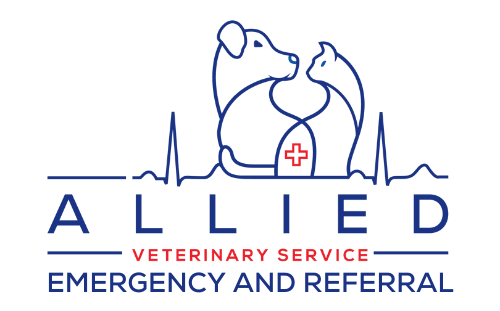Splenectomy Surgery (Removal of the Spleen)
Introduction:
Splenectomy, the surgical removal of the spleen, is a procedure performed in dogs and cats for various medical reasons, including splenic tumors, trauma, and certain blood disorders. The spleen plays multiple roles in the body, including filtering blood and assisting with the immune response, but animals can live without it. This guide provides an overview of the splenectomy procedure, its benefits, risks, and what pet owners can expect.
Why is Splenectomy Necessary?
Splenectomy may be recommended for:
- Tumors or Masses: Both benign and malignant tumors can form on the spleen. Removal can be life-saving.
- Splenic Torsion: This life-threatening condition occurs when the spleen twists upon itself, cutting off its own blood supply.
- Trauma: Injuries that cause splenic rupture and lead to internal bleeding may necessitate removal.
Why Choose Allied Veterinary Service for Your Pet’s Splenectomy?
- Our surgeons have undergone rigorous residency training in small animal orthopedic and soft tissue surgery.
- Patients receiving this procedure typically receive regional pain blocks to ensure the best experience possible for your beloved pet.
- Our doctors will care for your pet 24/7 before and after your pet’s surgery and tailor treatment according to the patient’s needs.
- We are capable of continuously monitoring irregular heartbeats after surgery, which is especially important for splenic surgeries.
What Does the Surgery Involve?
Splenectomy involves the complete removal of the spleen through an abdominal incision. The procedure is performed under general anesthesia. In cases where the spleen is enlarged or there's internal bleeding, blood transfusions may be necessary.
Benefits of Surgery:
- Removal of Disease: Directly addresses the cause of the pet’s symptoms and discomfort.
- Prevents Complications: Eliminates the risk of rupture and internal bleeding for diseased or damaged spleens.
- Can Be Curative: For benign conditions, removing the spleen can be a definitive cure.
Risks and Complications:
- Surgical Risks: Includes anesthesia risk, bleeding, and infection.
- Postoperative Complications: Potential for arrhythmias transient changes in blood cell counts.
- Adjustment Period: The body may require time to adjust to the absence of the spleen.
Recovery and Aftercare:
- Postoperative Monitoring: Pets typically stay in the hospital for 1-2 days for monitoring.
- Activity Restriction: Limit your pet’s activities and movements to ensure proper surgical site healing.
- Pain Management: We will provide medications to manage any discomfort during recovery.
- Follow-Up Care: Monitoring and follow-up appointments are crucial to assess healing and adjust care as needed.
Cost Considerations:
We offer a comprehensive cost estimate prior to the procedure, covering all aspects of pre-operative evaluation, surgery, post-operative care, and follow-up.
Final Thoughts:
Opting for a splenectomy for your pet can be a difficult decision, but in many cases, it is the best choice for their health and quality of life. Our team at Allied Veterinary Service is committed to supporting you and your pet through this process with the highest standard of care.
Legal Disclaimer:
This pamphlet is intended for educational purposes only and is not a substitute for professional veterinary advice. Treatment outcomes can vary based on individual patient conditions. Always consult with a qualified veterinarian to determine the best treatment options for your pet.
Contact Us:
Allied Veterinary Service - Emergency and Referral
8301 93rd Ave N, Brooklyn Park, MN 55445
Phone: (763) 463-9800
Open 24 Hours
